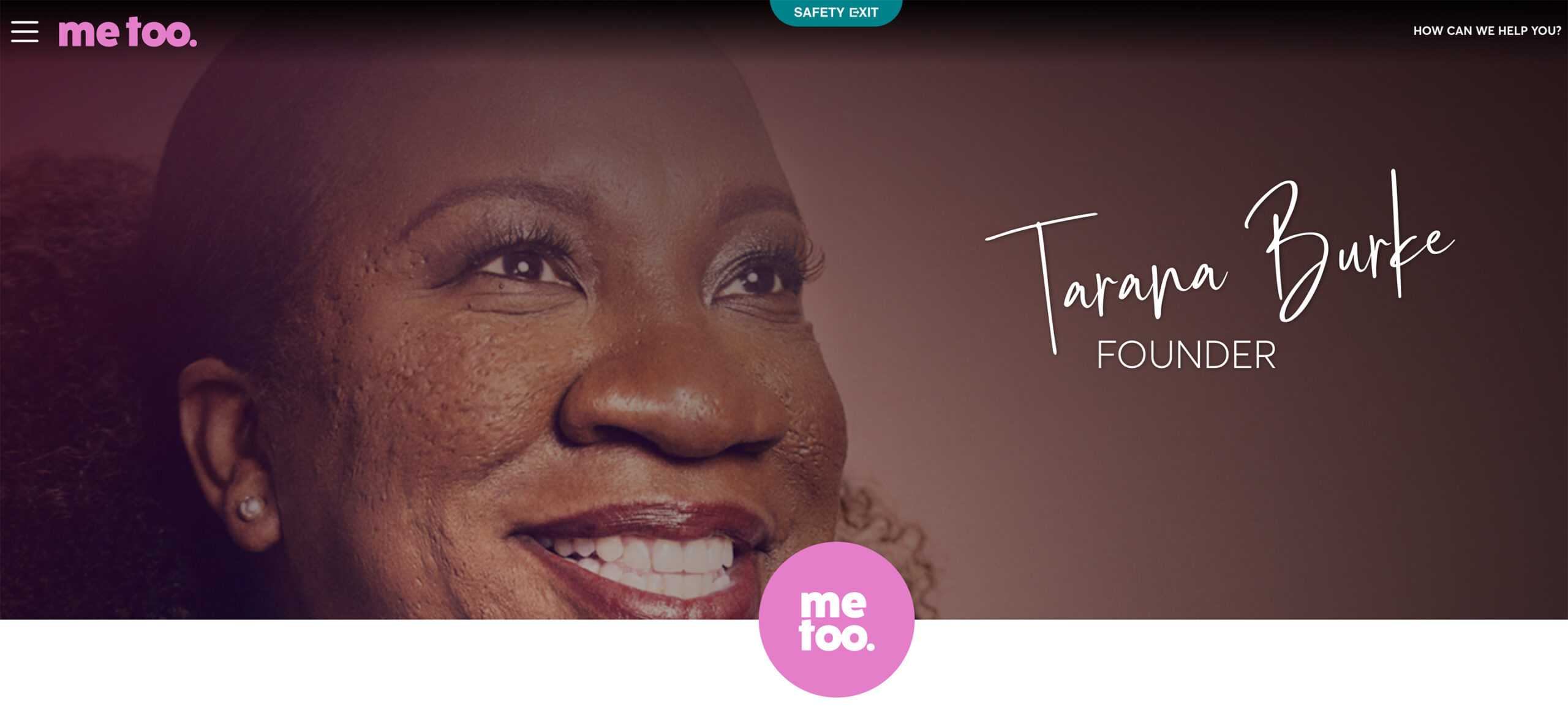
By Tiffany Davis and Janique Banks
Trinity Times Correspondents
For Trinity Washington University students like Crystelle Moe, being on a campus that supports protection against unwanted sexual advances provides her with a sense of security that allows her to really concentrate on her studies.
The work and activism of a pioneer like Tarana Burke – founder of the #MeToo movement – has empowered women to speak freely about sexual misconduct and over the years has led to a global cultural shift in attitudes about what is acceptable behavior and what constitutes sexual harassment in the workplace, on college campuses and throughout society.
#MeToo has made an impression on Trinity leaders, who have held “Take Back the Night” events to draw attention to sexual assault, sexual harassment, or sexual abuse, as well as a 2019 symposium on #MeToo and sexual violence, Moe said.
The university also holds the annual Clothesline Project, where students decorate clothes with anti-women’s violence messages and hang them up on a clothesline, a literal airing of dirty laundry.
Though Trinity President Patricia McGuire has long been an outspoken advocate for women’s safety, the university followed the #MeToo movement’s influence on the culture and expressed gratitude to Burke for her instrumental role in empowering sexual assault and sexual harassment survivors.
Born in The Bronx, New York, in 1973, Burke grew up in a housing project and was the victim of sexual assault and rape as a child and a teenager.
After graduating from Auburn University in Montgomery, Alabama, she began her activism for economic and racial justice.
After working with survivors of sexual assault, Burke established a non-profit organization called Just Be in 2003 and three years later she began using the phrase “Me Too” to draw attention to the prevalence of sexual abuse and sexual assault throughout society.
“In those early years, we developed our vision to bring resources, support, and pathways to healing where none existed before,” Burke said on the #MeToo website in the founder’s message. “And we got to work building a community of advocates determined to interrupt sexual violence wherever it happens.”
Initially, the purpose of the movement was to provide sexual assault and sexual harassment survivors a safe space to come out of the shadows, shed the shame and visibly demonstrate how many women experience this, especially in the workplace.
More than a decade later, the hashtag #MeToo started to be used on social media in 2017, providing greater public awareness of the problem by giving women a public platform to detail the abuses inflicted on them.
The hashtag went viral, and millions of people started using the #MeToo phrase and in later years Burke began to refer to it as an international movement for justice for marginalized people.
It’s brought attention to the problem and forced changes in the workplace, on college campuses, in public schools and in acknowledgement of what constitutes sexual abuse.
“We’re here to help each individual find the right point of entry for their unique healing journey,” Burke said. “But we’re also galvanizing a broad base of survivors and working to disrupt the systems that allow sexual violence to proliferate in our world. This includes insisting upon accountability on the part of perpetrators, along with the implementation of strategies to sustain long-term, systemic change. So that one day, nobody ever has to say, ‘me too’ again.”
For Moe, when Trinity began holding the Take Back the Night event, she really began to absorb the university’s “support for the women here on campus.”
“The event is for the university to bring awareness to women’s situations that may have happened on or near campus,” she said, “and to aid women with resources that will help begin their journey to healing.”
There were 11,800 reports of forcible sex offenses on U.S. college campus in 2019, according to the National Center for Education Statistics.
These kinds of statistics demonstrate the need for #MeToo and universities like Trinity that encourage women to speak out about abuse, said Fortune Onwuzuruike, an adjunct professor who has taught at the university and specializes in cybersecurity. “Yes, Trinity supports women trying to pursue an education and strive to better themselves, their lives, and their future,”Onwuzuruike said, adding that he believes the university creates a “comfortable” space for women on campus, standing with the #MeToo movement.
Thank you, TrinityTimes, for these 6 articles, and for this one, reporting on Trinity’s involvement in the #MeToo movement today. Brava!